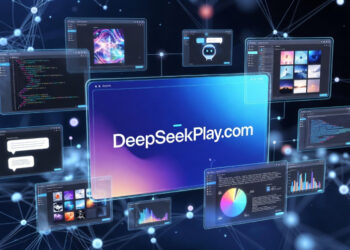In the digital age, having a functional and compelling app can significantly boost your business prospects. However, transforming your app idea into reality hinges on one critical decision – choosing the right app developers. This decision can make or break your project. Hence, it is essential to have a thorough understanding of the app development process and know what to look for in potential developers.
Why Choosing the Right Developer Matters
The success of your app does not solely depend on its concept but also on its execution. When you hire mobile app developers, you gain partners who will not only bring your idea to life but also add value through their technical expertise. These skilled professionals can potentially foresee challenges and provide innovative solutions. On the other hand, a poor developer might waste your resources and time with subpar results. Additionally, a competent developer can help you navigate through legal and security concerns, which are crucial for successful app development.
Factors to Consider When Selecting an App Developer
Selecting the right team or individual for your app development project requires thorough consideration of several factors:
Technical Expertise
- Programming Languages and Frameworks: Ensure they have expertise in relevant programming languages such as Swift for iOS and Kotlin for Android.
- Platform Knowledge: Whether you’re aiming for iOS, Android, or cross-platform, ensure they have the necessary skills.
- Experience with App Development Tools: Familiarity with app development tools such as Xcode, Android Studio, and React Native can significantly impact the quality of your app.
Portfolio
- Relevance: Look for projects similar to yours in their portfolio to gauge their ability to deliver.
- Quality over Quantity: Don’t be swayed by the number of apps; instead, focus on a few high-quality projects.
Communication and Collaboration
- Communication Skills: Frequent and transparent communication is crucial for app development success. Choose a developer who can effectively communicate updates, issues, and ideas with you.
- Collaboration Style: Determine their collaboration style – do they prefer a more hands-on or independent approach? Make sure it aligns with your expectations.
Client Testimonials
- Feedback: Client testimonials provide insights into their reliability, work ethic, and communication.
- Engagement: A developer’s willingness to engage with their client’s vision is as crucial as their technical skills.
Pricing
- Transparency and Flexibility: Understand their fee structure and ensure it aligns with your budget and project scope.
- Cost vs. Value: The cheapest option isn’t always the best. Evaluate what you’re getting for the price.
Support and Maintenance
- Post-Development Support: Ensure your developer provides post-development support such as bug fixes, updates, and maintenance.
- Long-term Relationship: Building a long-term relationship with your app developer can result in better quality and more efficient development for future projects.
Communication
- Clarity and Availability: Regular updates and accessibility for queries are vital for smooth project progress.
- Understanding: They should grasp your project goals and offer constructive feedback.
Communicating Your App Vision Effectively
- Be Clear and Concise: Provide a well-defined project brief highlighting your goals.
- Use Visuals and Prototypes: Images and wireframes can help bridge the communication gap.
- Stay Open to Suggestions: Developers may offer valuable insights based on their experience.
Popular App Development Platforms and Technologies
Choosing the right development platforms and technologies is critical in creating a successful app. Here are some popular ones:
- React Native: A JavaScript framework for writing real, natively rendering mobile applications for iOS and Android. It’s based on React, Facebook’s JavaScript library for building user interfaces, but instead of targeting the browser, it targets mobile platforms.
- Flutter: Developed by Google, Flutter is an open-source UI software development kit used to develop applications for Android, iOS, Linux, Mac, Windows, Google Fuchsia, and the web from a single codebase.
- Swift: A powerful and intuitive programming language for macOS, iOS, watchOS, and tvOS. Swift’s clean slate, backed by the mature and much-loved Cocoa and Cocoa Touch frameworks, is a chance to reimagine how software development works.
- Kotlin: An open-source, statically typed programming language targeting the Java platform. Kotlin is designed to interoperate fully with Java, but it’s much cleaner in terms of syntax, providing an enhanced coding experience.
- Blockchain: Known for its key role in cryptocurrency systems, blockchain technology is appreciated for providing secure, decentralized transaction ledgers. This opens new avenues in app development, especially in terms of security and transparency.
- AI (Artificial Intelligence): AI is revolutionizing mobile app development, offering capabilities such as personalized user experiences, predictive analytics, and intelligent automation. This technology adapts and learns from user interactions, making apps smarter over time.
The Future of App Development
With the rapid evolution of technology, staying updated on the latest trends, like augmented reality (AR) and machine learning (ML), is crucial. Developers who continuously learn and adapt are preferable partners for future-proofing your app. Here are some emerging technologies that are expected to shape the future of app development:
- Internet of Things (IoT): The IoT refers to a system of interconnected devices, machines, and other objects through the internet. As the number of connected devices increases, so does the potential for innovative and personalized apps.
- Virtual Reality (VR): VR technology creates a simulated environment, allowing users to interact with digital content in immersive experiences. With VR’s increasing popularity, it’s predicted that VR-based apps will rise.
- Progressive Web Apps (PWAs): PWAs are web applications that provide an experience similar to native apps. They allow access without requiring installation and can work offline, making them more accessible and convenient for users.
- Blockchain Technology: Blockchain technology is being explored for its potential to revolutionize app development. It has the potential to improve security, transparency, and efficiency by decentralizing data storage and transactions.
- Artificial Intelligence (AI): AI is revolutionizing app development, offering capabilities such as personalized user experiences, predictive analytics, and intelligent automation. It’s predicted that AI will become an integral part of app development in the future.
Continuing to explore and integrate new technologies will be crucial for app developers to stay competitive in the ever-evolving world of technology. The constant advancements in these areas provide endless possibilities for innovative and personalized apps that can enhance user experiences.
Conclusion
Your choice of app developers can significantly influence the trajectory of your project. Taking the time to select a team or individual aligned with your vision, requirements, and budget is well worth the effort. With the right app developers and a strong understanding of the current trends and technologies, you can create a successful and impactful app that will stand out in the competitive market.





